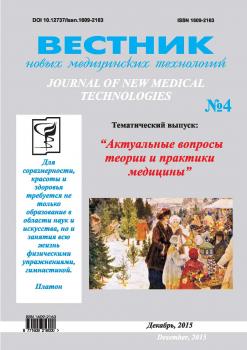Sexually transmitted infections (STIs) have a negative impact on the reproductive health of women, complicate pregnancy, leading to ante ‐ and perinatal losses, worsen demographic situation. The greatest role in the development of complications due to STIs is given a chlamydial, gonococcal, Trichomonas, Mycoplasma, infections, which often lead to miscarriage, premature birth, stillbirth, prenatal rupture of amniotic membranes, to the birth of a child with low birth weight, intrauterine infections, postnatal endometritis. Organization of massive screening of pregnant women for early STIs detection is a relevant problem of public health. The use of modern methods of molecular diagnostics with the use of multiprime research allows to examining the greatest number of pregnant women in a short time. Early STIs diagnosis in pregnant women, timely treatment of infected women provides an opportunity to prevent complications during preg nancy and neonatal period. In this study the analysis of the prevalence of chlamydia, gonorrhea, Trichomonas and Mycoplasma infection among pregnant women of the Tula region and the comparison the effectiveness of diagnosing gonorrhea and Trichomonas infections in microscopic and molecular‐biological research as a result of the screening in the framework of realization of the regional program were carried out.
sexually transmitted infections (STIs), screening of pregnant, ante ‐ and perinatal losses, molecular‐biological research, multiprime research.
Улучшение демографической
ситуации является приоритетной задачей как
федерального, так и регионального здравоохра‐
нения. Для решения этой задачи в настоящее
время в Тульской области действует региональ‐
ная программа, утвержденная Постановлением
правительства Тульской области [8]. Заявленное
в программе улучшение демографической си‐
туации среди других факторов должно проис‐
ходить за счет снижения репродуктивных по‐
терь и улучшения здоровья новорожденных
детей. Среди целого ряда факторов, негативно
влияющих на течение беременности и состоя‐
ние новорожденных значительную роль играют
заболевания органов репродукции [5,7], в пер‐
вую очередь вызванные инфекциями, передавае‐
мыми половым путем (ИППП).





